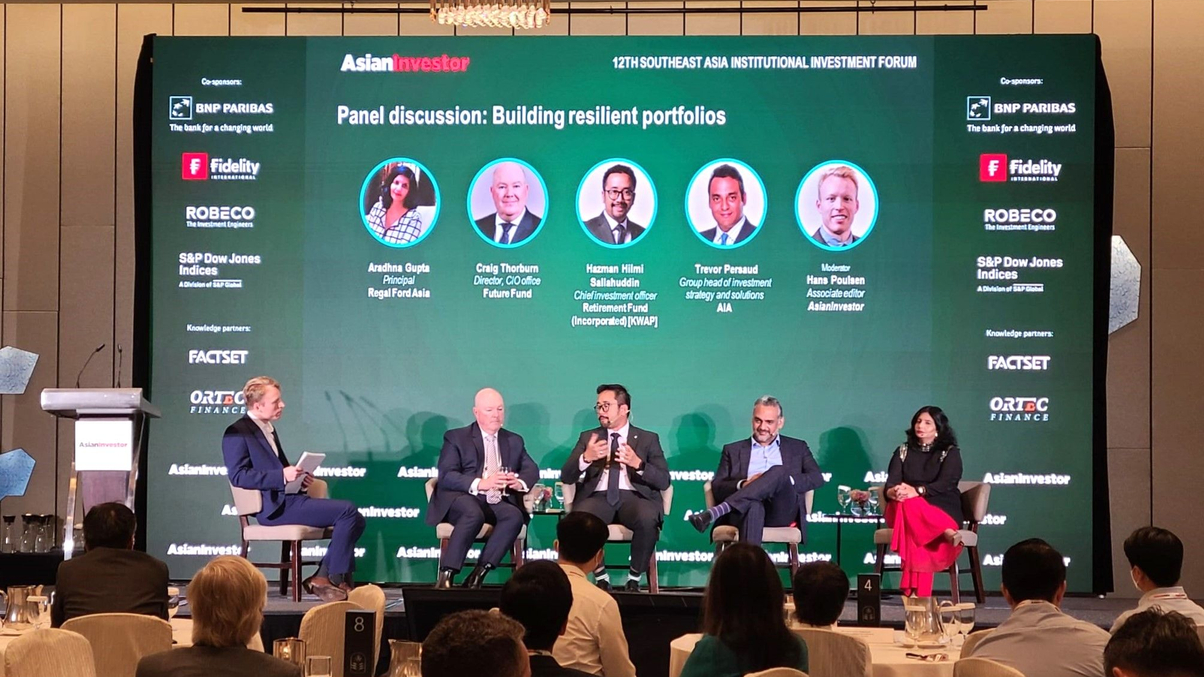Future Fund: is this the end of the line for traditional portfolio construction?
Australia’s sovereign wealth fund asks if traditional portfolio construction is a thing of the past, audience hears at AsianInvestor’s Southeast Asia Institutional Investment Forum.

“The death of traditional portfolio construction” is the working title for a position paper slated to be released by Future Fund, Craig Thorburn, director at the CIO office at Australia’s sovereign wealth fund, told the audience at AsianInvestor’s 12th Southeast Asia Institutional Investment Forum in Singapore on November 22.
Sign in to read on!
Registered users get 2 free articles in 30 days.
Subscribers have full unlimited access to AsianInvestor
Not signed up? New users get 2 free articles per month, plus a 7-day unlimited free trial.
¬ Haymarket Media Limited. All rights reserved.


